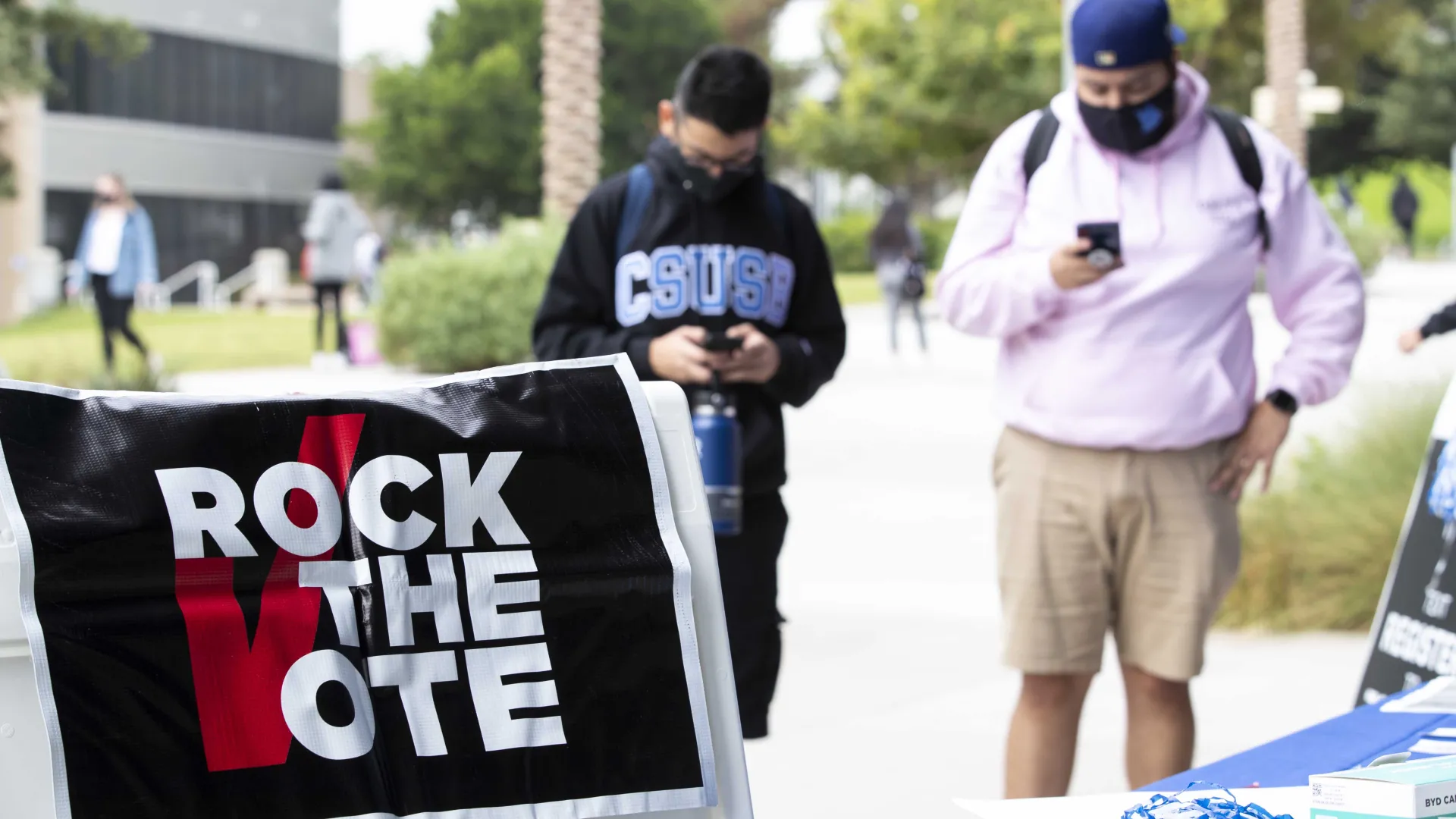Joe Gutierrez | CSUSB Office of Strategic Communication | (951) 236-4522 | joeg@csusb.edu

Voting rates among Cal State San Bernardino students increased significantly in the last presidential election, rising to 68.4 percent in 2020 from a rate of 52.5 percent in 2016.
The report comes from the Institute for Democracy & Higher Education (IDHE), creators of the National Study of Learning, Voting, and Engagement, or NSLVE.
“Despite COVID challenges, CSUSB Coyotes remained committed to civic engagement through online voter registration and participation campaigns! The student-led efforts, complemented by programs from Academic and Student Affairs, yielded a 68 percent voting rate, which is above the national higher education average. CSUSB continues to empower students to be well-informed, active members of their communities who have the opportunity to cultivate positive change.”
CSUSB’s 68.4 percent voting rate is above the 66 percent average voting rate for all institutions. Registration rates also rose to 84.9 percent in 2020 from 77.8 percent in 2016.
The university participates every year in NSLVE to monitor student voter registration and voting behavior, among other measures. Due to its efforts, CSUSB has been named the best college for civic engagement by Intelligent.com and has been recognized by the ALL IN Democracy Challenge for increasing college student voting rates. CSUSB has also been included on the 2020 and 2021 Best Colleges for Student Voting Honor Rolls awarded by Washington Monthly.
Since 2008, CSUSB has been a continuous recipient of the Carnegie Foundation Community Engagement Classification. CSUSB was also named one of five universities and colleges from across the country to receive the prestigious Washington Center Higher Education Civic Engagement Award in 2012.
Nationwide, the study’s authors report a record-breaking set of findings. On campuses across the country, students built on the momentum swing of 2018 and voted at high rates in the 2020 election, with voter turnout jumping to 66 percent in last year’s presidential election. The 14-percentage point increase, from 52 percent turnout in the 2016 election, outpaces that of all Americans, which jumped 6 percentage points from 61 percent to 67 percent, according to the U.S. Census Bureau.
“That students, often younger and first-time voters, turned out at rates commensurate with the general public is nothing short of stunning,” said IDHE director Nancy Thomas. “We attribute this high level of participation to many factors, including student activism on issues such as racial injustice, global climate change and voter suppression, as well as increased efforts by educators to reach students and connect them to the issues and to voting resources.”
IDHE’s National Study of Learning, Voting, and Engagement (NSLVE, pronounced n-solve) is the nation’s largest study of college and university student voting. Institutions must opt-in to the study, and at this time, nearly 1,200 campuses of all types – community colleges, research universities, minority-serving and women’s colleges, state universities, and private institutions – participate. The dataset reflects all 50 states and the District of Columbia and includes 49 of the nation’s 50 flagship schools. IDHE uses de-identified student records to ensure student privacy. The 2020 dataset is robust with 8,880,700 voting-eligible students representing 1,051 colleges and universities. IDHE is located at Tufts University’s Tisch College of Civic Life.
For more information about the study, review the full CSUSB campus report by IDHE’s National Study of Learning, Voting, and Engagement.